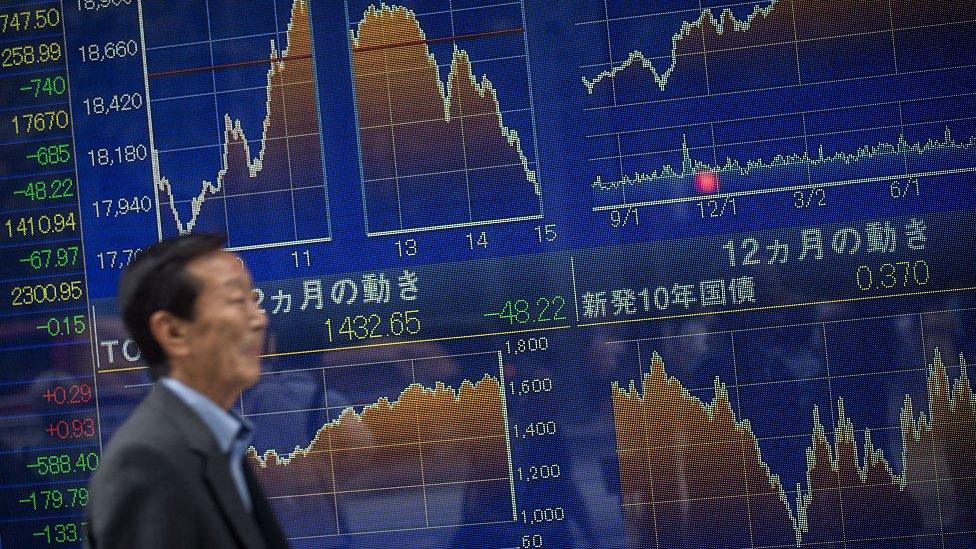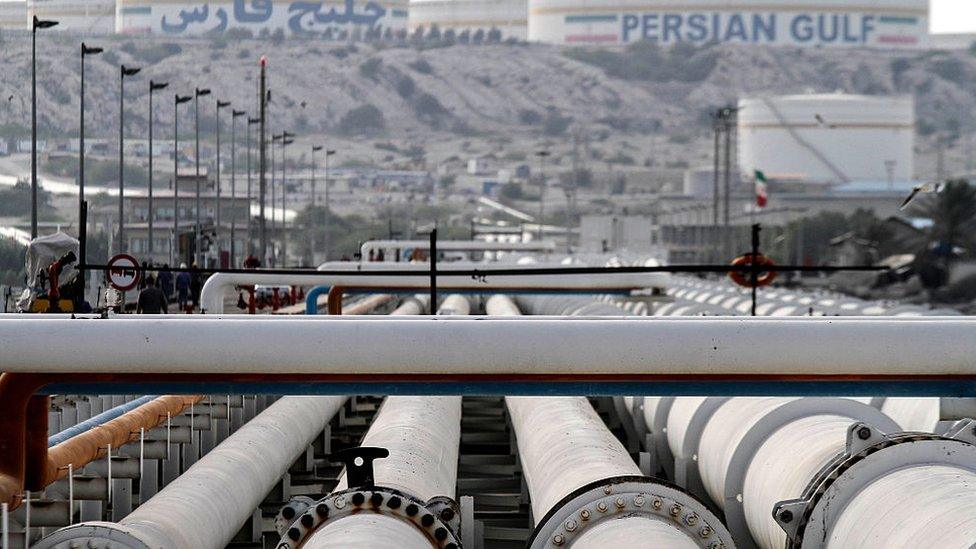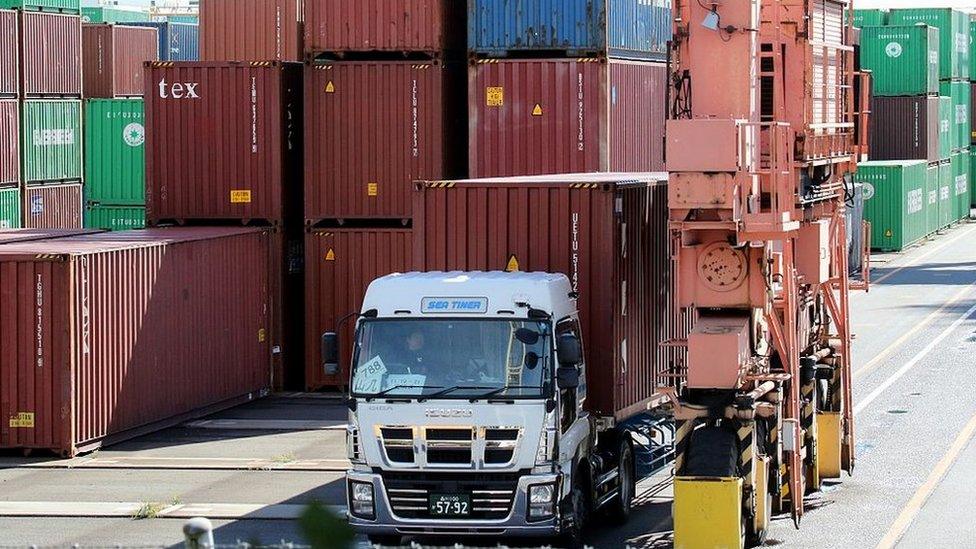IMF says global financial stability has improved
- Published

Global financial stability has continued to improve, according to a new report from the International Monetary Fund.
But the IMF warns there are risks ahead nonetheless.
There is political and policy uncertainty around the globe, particularly in the United States and Europe.
There is also a warning from the IMF about rising debt levels in China.
One of the key elements underpinning this judgement that financial stability has improved is the stronger overall economic outlook that the IMF described 24 hours earlier.
Stronger economic growth means that households, businesses and governments have more income to maintain the payments on their debts. It tends to reduce the danger of debt defaults which can do widespread damage to banks.
Long term interest rates have risen in many countries, boosting the earnings of banks and insurance companies.
Some risks in emerging markets have fallen as the prices of the commodities some of them produce, such as oil, have partly recovered from recent lows. Many banks in these countries have strengthened their financial foundations.
So, sighs of relief all round? Can we finally relax? Have the dark clouds of the crisis of 2008 finally gone?
Only up to a point. The report does identify some risks to financial stability.

Some risks in emerging markets have declined as the price of commodities such as oil partly recover
The IMF's recurrent concern about the possibility of more protectionist trade policies - measures that create new barriers to imports - makes another appearance.
If countries were to go down that path - and it seems to be the US under the new administration in Washington that the IMF is most concerned about - the report warns that businesses in emerging economies that are closely integrated into global trade and capital markets could face lower foreign revenues and higher borrowing costs.
Rising debt levels
The report notes that share prices in countries with substantial manufacturing exports to the US - such as Mexico and Vietnam - have been relatively weak.
Some have large needs for foreign financing (Poland and Malaysia, for example) while others have low levels of foreign exchange reserves - South Africa and Vietnam. Turkey is potentially vulnerable in a number of respects.
There is also a specific concern about rising debt levels in China. Earlier this week there was news that economic growth in China had strengthened in the first quarter of this year. The downside of that was the extent to which it was fuelled by a faster expansion of credit.
The report says there is evidence that credit booms of this scale are "often dangerous".
And all is still not well with Europe's banks, although the report acknowledges the benefits of the eurozone's economic recovery and efforts to build up banks' capital.
Many have persistently weak profits which makes them potentially more vulnerable to unexpected shocks.
- Published18 April 2017

- Published7 April 2017

- Published16 January 2017
